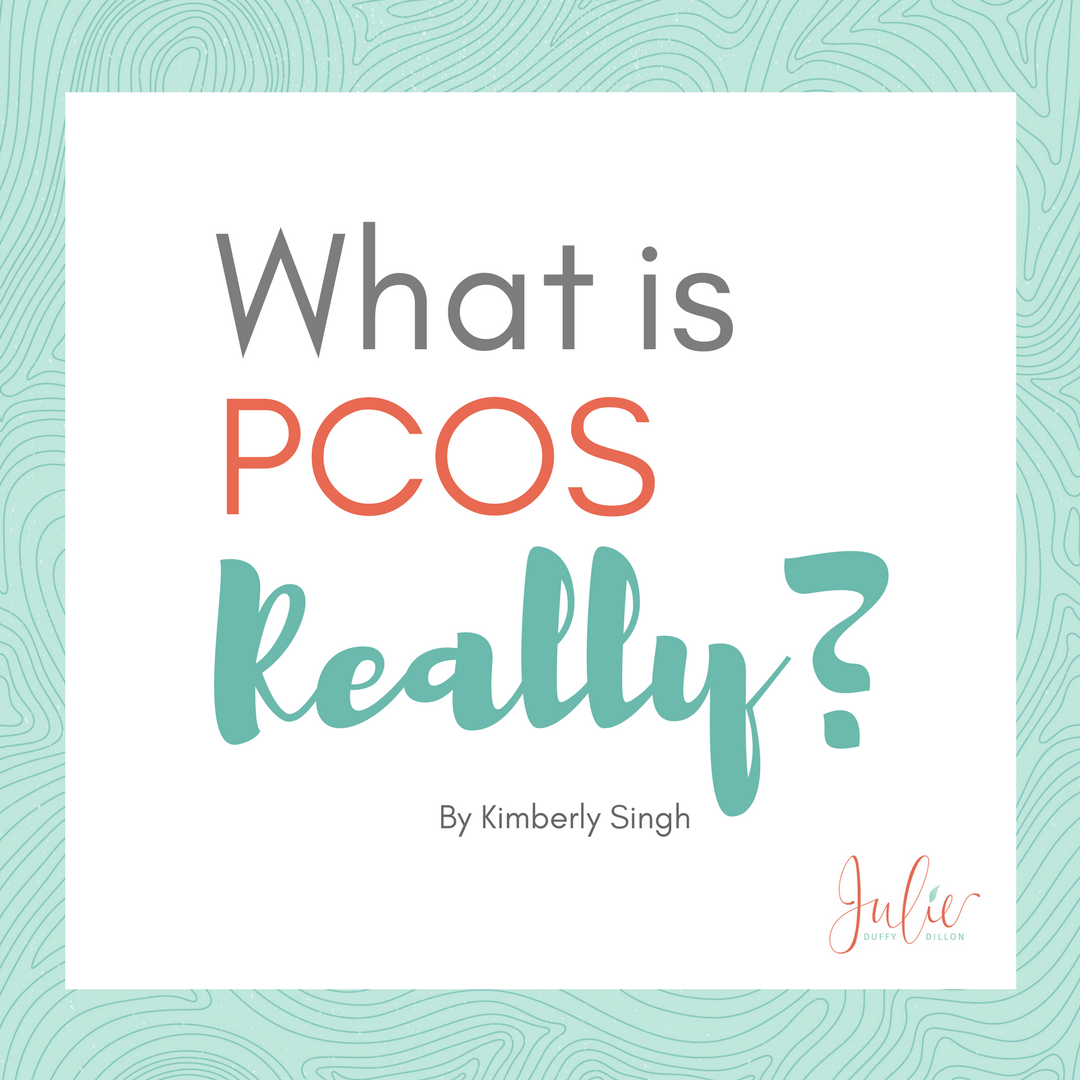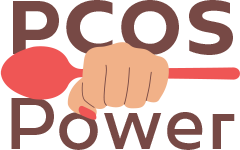This article was written by my previous Nutrition Grad Student, Kimmie Singh. She is a fat woman of color who experiences PCOS. You can find out more information about her work now as a dietitian here.
What is PCOS?
PCOS is one of the most common endocrine disorders in those assigned female at birth, creating a hormonal imbalance that leads to a variety of symptoms. People with PCOS tend to have high levels of insulin and androgens (like testosterone), causing symptoms that affect their overall health, fertility, appearance, and metabolism.
What causes PCOS?
PCOS seems to be related to a combination of environmental factors and genetics. There are both maternal and paternal genetic links to PCOS. I was surprised when I linked my PCOS to my father’s female relatives.
Environmental factors that affect PCOS include geographic location, exposure to industrial products, and changes to the food system. Agricultural changes that affect the food system may also influence the development of PCOS. Some environmental factors are out of your control, and I know this can feel frustrating.
As I have learned about the environmental factors that influence my PCOS, I can understand how to better nourish my body through what I can control. I look forward to sharing how changes in the food system affect PCOS.
Want to find a way to treat your PCOS without dieting?
Grab a FREE download from Julie here.
Did my weight cause my PCOS?
Nope. Your weight did not cause your PCOS. A lot of health-related guilt can surround existing at a higher weight, but numerous studies show that weight gain does not cause PCOS.
Should I wait to worry about my PCOS when/if I want to get pregnant?
You may not want to have children now or ever, but you can still manage your PCOS. PCOS affects more than just your fertility. It’s associated with diabetes, high blood pressure, high LDL cholesterol, anxiety, depression, and endometrial cancer. PCOS can also influence your cravings and how your body uses energy from food. Managing your PCOS can improve your overall health and energy regardless of if you are trying to get pregnant.
Is there a cure for PCOS?
There is not a cure for PCOS. This may seem scary, and you may be wondering if there is a special secret remedy to get rid of PCOS forever. The Internet may try to sell you on a special diet or remedy, and it may seem appealing, but I know you won’t fall for it!
Although there is not a cure for PCOS, there are many ways to manage it. In addition to various types of treatment, there are lots of changes you can make to your lifestyle in order to manage your PCOS.
A lifestyle change-I’m sure you have heard this before.
Suggesting a lifestyle change is usually accompanied by a friendly spiel about diet and exercise. Although nutrition and movement are important components of managing PCOS, there are many other aspects of your life! These may include learning ways to manage stress, build support, advocate for your needs, and, perhaps most importantly, how to listen to your body.
Stay tuned to learn more about these in future posts. Growing in these areas can help you manage PCOS.
In my experience, using a wholesome approach to managing PCOS helps me feel like I’m working with my PCOS, not against it.
It helps me work in sync with my body, and I hope it helps you do the same.
Want to explore more non diet options to help manage your PCOS, promote health AND healing?
Click here for details on Julie’s PCOS and Food Peace course.
References
Diamanti-Kandarakis, E., Christakou, C., & Marinakis, E. (2012). Phenotypes and Enviromental Factors: Their Influence in PCOS. Current Pharmaceutical Design, 18(3), 270-282. doi:10.2174/138161212799040457
Dumesic, D. A., Oberfield, S. E., Stener-Victorin, E., Marshall, J. C., Laven, J. S., & Legro, R. S. (2015). Scientific Statement on the Diagnostic Criteria, Epidemiology, Pathophysiology, and Molecular Genetics of Polycystic Ovary Syndrome. Endocrine Reviews, 36(5), 487-525. doi:10.1210/er.2015-1018
Hayek, S. E., Bitar, L., Hamdar, L. H., Mirza, F. G., & Daoud, G. (2016). Poly Cystic Ovarian Syndrome: An Updated Overview. Frontiers in Physiology, 7. doi:10.3389/fphys.2016.00124
Merkin, S. S., Phy, J. L., Sites, C. K., & Yang, D. (2016). Environmental determinants of polycystic ovary syndrome. Fertility and Sterility, 106(1), 16-24. doi:10.1016/j.fertnstert.2016.05.011
Polycystic ovary syndrome. (n.d.). Retrieved May 29, 2017, from https://www.womenshealth.gov/publications/our-publications/fact-sheet/polycystic-ovary-syndrome.html





